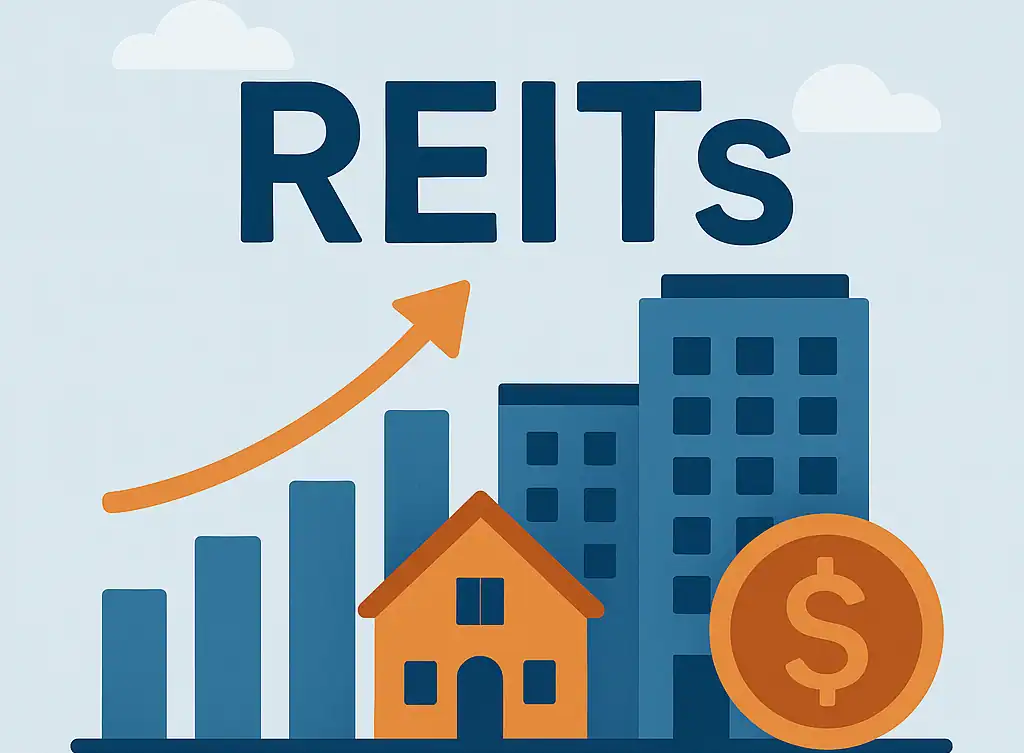As real estate evolves with digital transformation, PropTech startups are redefining how properties are bought, sold, managed, and analyzed. A key enabler of their innovation is access to accurate, timely data, often sourced from MLS feeds. Licensing MLS feeds to PropTech startups has become an essential aspect of fostering innovation, expanding market access, and maintaining a competitive edge in a rapidly shifting real estate ecosystem.
Overview
MLS (Multiple Listing Service) feeds contain structured property data shared by real estate professionals. By licensing these feeds to PropTech startups, MLS organizations empower these companies to build tools for automation, analytics, marketing, and improved consumer experiences. Clear licensing frameworks, data governance, and partnerships are crucial for this dynamic collaboration.
Real Estate Development World
Developers rely on timely data to assess market demand, price trends, and development opportunities. Licensed MLS feeds allow PropTech platforms to provide predictive analytics and interactive tools that support decision-making in the development process, enhancing investment outcomes.
Private Real Estate Networks
While many transactions occur off-market, MLS data licensing encourages startups to bridge private and public data systems. PropTech platforms can use MLS feeds to validate off-market listings, provide richer insights, and connect private sellers with qualified buyers.
Remote Real Estate Work
The rise of remote work has pushed the industry toward digital solutions. PropTech platforms built on MLS data enable virtual showings, online collaboration, and digital documentation. Licensing ensures these tools have access to up-to-date information essential for remote operations.
The MLS Concept
The MLS is a cooperative system through which real estate agents share listing information. Licensing these feeds to third-party PropTech startups allows for broader innovation while maintaining data integrity. MLSs act as gatekeepers, ensuring responsible use of data through licensing terms.
Needed Training Courses
Training for agents and PropTech developers should include MLS data structure, compliance rules, and API integration. Educating both groups supports responsible data use and encourages collaborative innovation.
Needed Certifications
Data handling certifications like Certified Information Privacy Technologist (CIPT) or real estate tech certifications can help PropTech teams qualify for MLS data access. MLS organizations may also establish certification programs specific to data licensing.
Onboarding Programs for New Agents
Agents need to understand how their listing inputs impact downstream applications. Onboarding should include how PropTech tools use MLS data and how to optimize listing accuracy to ensure compatibility with licensed platforms.
MLS Agent Onboarding Processes
MLS systems must train new members not only in listing protocols but also in how their data is syndicated, licensed, and used by third-party vendors. Awareness builds trust in data-sharing ecosystems.
Licensing MLS Feeds to PropTech Startups
Licensing involves granting access to MLS data through API or data feed agreements. Startups typically use this data for consumer search platforms, valuation tools, AI models, or transaction management. MLSs must establish legal frameworks that address pricing, usage rights, data refresh rates, branding, and compliance. Done right, this creates a win-win where MLSs gain revenue and startups gain foundational data to build innovation.

MLS Platforms
Major MLS platforms like Bright MLS, Stellar MLS, and CRMLS offer API-based licensing packages to PropTech companies. These packages vary in cost, access level, and permissible use. Collaboration between platforms and developers ensures that data is used responsibly and creatively.
Optimizing MLS
Licensing partnerships reveal gaps in MLS data quality and availability. Feedback from PropTech startups can help MLS organizations streamline fields, update formats, and enhance API performance. Optimization becomes an iterative, collaborative process.
Artificial Intelligence
Licensed MLS feeds fuel AI tools that detect pricing anomalies, predict buyer behavior, or generate automated descriptions. AI applications depend on consistent, rich data, making licensing terms and data standards mission-critical.
Analytics
PropTech startups use MLS data to build dashboards for investors, agents, and homebuyers. Licensing agreements must accommodate data transformations and aggregations that enable actionable insights while protecting proprietary information.
Economic Impact
Licensing MLS data fosters a thriving PropTech ecosystem, leading to job creation, improved transaction efficiency, and broader access to real estate information. The economic ripple effect benefits tech sectors, real estate markets, and consumers.
Data Quality Management
Startups rely on clean, current data. MLSs must maintain high data quality through contributor scoring, automated validation, and feedback loops with licensees. High-quality MLS data increases its value and utility.
Data Security Standards
Licensing agreements must enforce data security protocols—encryption, access controls, and audit trails—to ensure MLS feeds are protected. Startups must comply with industry standards like SOC 2, ISO 27001, and relevant privacy laws.
Sustainable Development Data
PropTech startups incorporating energy efficiency data, LEED ratings, or solar potential maps require enriched MLS data. Licensing agreements should allow for supplemental data layers and integration with sustainability databases.
Personalization Features
With licensed data, startups build platforms offering personalized search filters, pricing recommendations, and lifestyle matches. Licensing structures must enable this kind of data customization while maintaining accuracy.
User Experience Design
Successful PropTech tools focus on UX. Licensing agreements must allow freedom to design consumer-friendly experiences while honoring branding and data attribution guidelines from the MLS.
Usability Testing
Startups must test user interfaces built on MLS data to ensure intuitive navigation, error-free results, and responsive design. MLSs can be supported by providing sandbox environments for development and testing.
Fix and Flip
Licensed MLS data supports fix-and-flip analysis tools that help investors evaluate property condition, time on market, and resale potential. These tools increase investor confidence and deal flow.
Property Valuation Tools
AVMs (Automated Valuation Models) use MLS data to deliver instant property valuations. Licensing enables startups to fine-tune models with real-time listings, sold data, and market trends, offering an alternative to traditional appraisals.
Cross-Promotion Strategies in MLS
MLSs can cross-promote approved PropTech partners through affiliate programs, in-platform features, or agent dashboards. Such partnerships create mutual value and strengthen industry cohesion.
Avoiding Legal Trouble When Wholesaling Properties
By integrating MLS compliance checks into startup tools, licensed data can help users stay within legal bounds. Real-time alerts and educational resources reduce the risk of illegal wholesaling practices.
Leads – Integrating Digital Marketing
Licensed data fuels SEO strategies, lead funnels, and retargeting campaigns. Startups can build targeted marketing tools that connect agents with qualified leads, based on verified listing data.
Machine Learning Models
MLS feeds offer a training ground for machine learning models that classify listings, predict prices, or match properties to buyers. Licensing allows developers to build and iterate models with real-world data.
Renewable Energy Integration
Startups can overlay MLS data with renewable infrastructure maps—solar grid proximity, EV charging stations—providing buyers and developers with eco-conscious decision tools. Licensing should accommodate these integrations.
Process Improvement
PropTech startups using licensed data often identify inefficiencies in MLS structures. Their feedback can drive process enhancements—field standardization, API speed, or documentation quality—that benefit all stakeholders.
Innovation Hubs
Real estate-focused accelerators and innovation hubs help startups navigate MLS licensing. Mentorship and matchmaking between MLS executives and startups promote mutually beneficial collaborations.
Review and Reputation Systems
Platforms built on MLS data can include agent ratings, listing history, and consumer reviews. Licensing terms should ensure accurate representation while protecting agents from unfair practices.
Venture Capital Investments
Startups with licensed MLS access are more attractive to investors due to their data advantage. Licensing agreements can highlight exclusivity, regional coverage, and scalability—key points for VC pitches.
Business Model Innovation
PropTech startups introduce models like freemium tools, subscription platforms, and performance-based pricing—all powered by MLS data. Licensing agreements must accommodate varied monetization strategies.
Market Trend Predictive Modeling
With historical and current MLS data, startups create predictive models for pricing, demand, and neighborhood growth. Licensing must allow historical data access and model-driven insights.
Operational Efficiency Solutions
Startups improve operational workflows for agents and brokers—scheduling, CRM sync, contract generation—by integrating MLS data. Licensing facilitates seamless operations and smarter decision-making.
Professional Development
MLSs can partner with PropTech platforms to offer agent training modules based on new tools. Co-branded certifications enhance agent knowledge and promote responsible tech usage.
Frequently Asked Questions
What is MLS feed licensing?
It’s the process of granting PropTech companies access to MLS data under legal agreements for approved use cases.
Why is licensing important?
It protects data integrity while enabling innovation, ensuring that all parties benefit from structured collaboration.
Who qualifies for licensing?
PropTech startups with a legitimate business model, secure infrastructure, and compliance protocols.
What does licensing cost?
Fees vary based on data scope, region, and usage volume. Some MLSs offer tiered pricing or startup-friendly plans.
Can MLS revoke access?
Yes, if a licensee violates terms, misuses data, or fails to meet compliance requirements.
Licensing MLS feeds to PropTech startups is a vital bridge between tradition and innovation in real estate. By enabling access to curated property data, MLS organizations empower a new generation of technology-driven solutions that benefit agents, buyers, developers, and the industry at large. As licensing becomes more streamlined and strategic, the collaboration between MLSs and startups will drive the future of real estate technology and consumer experience.










